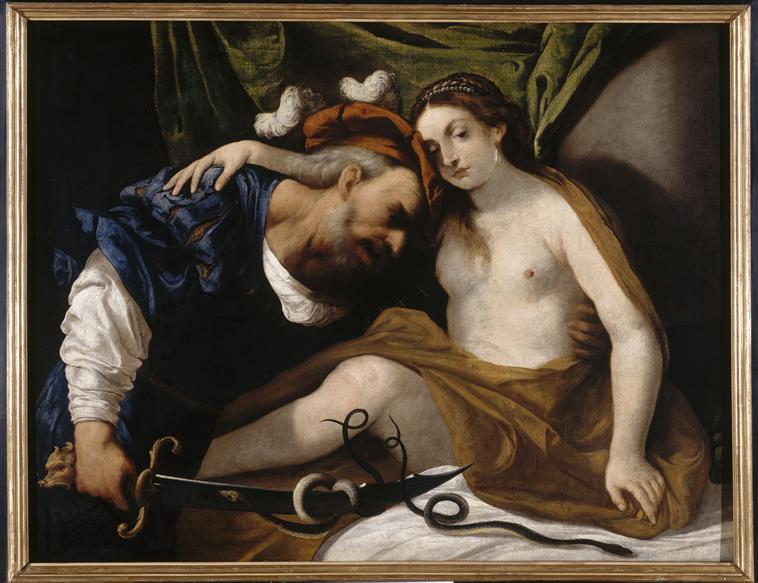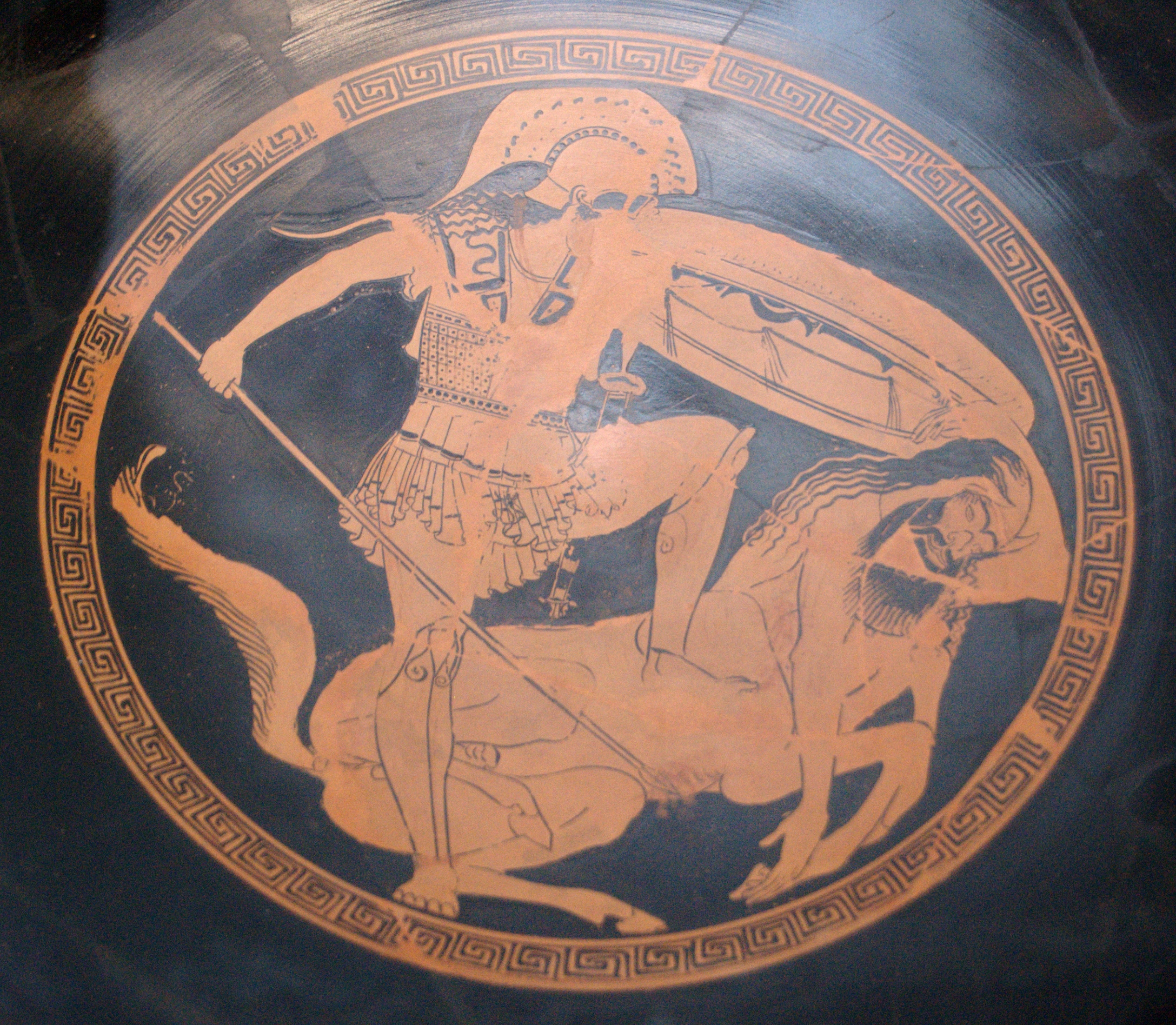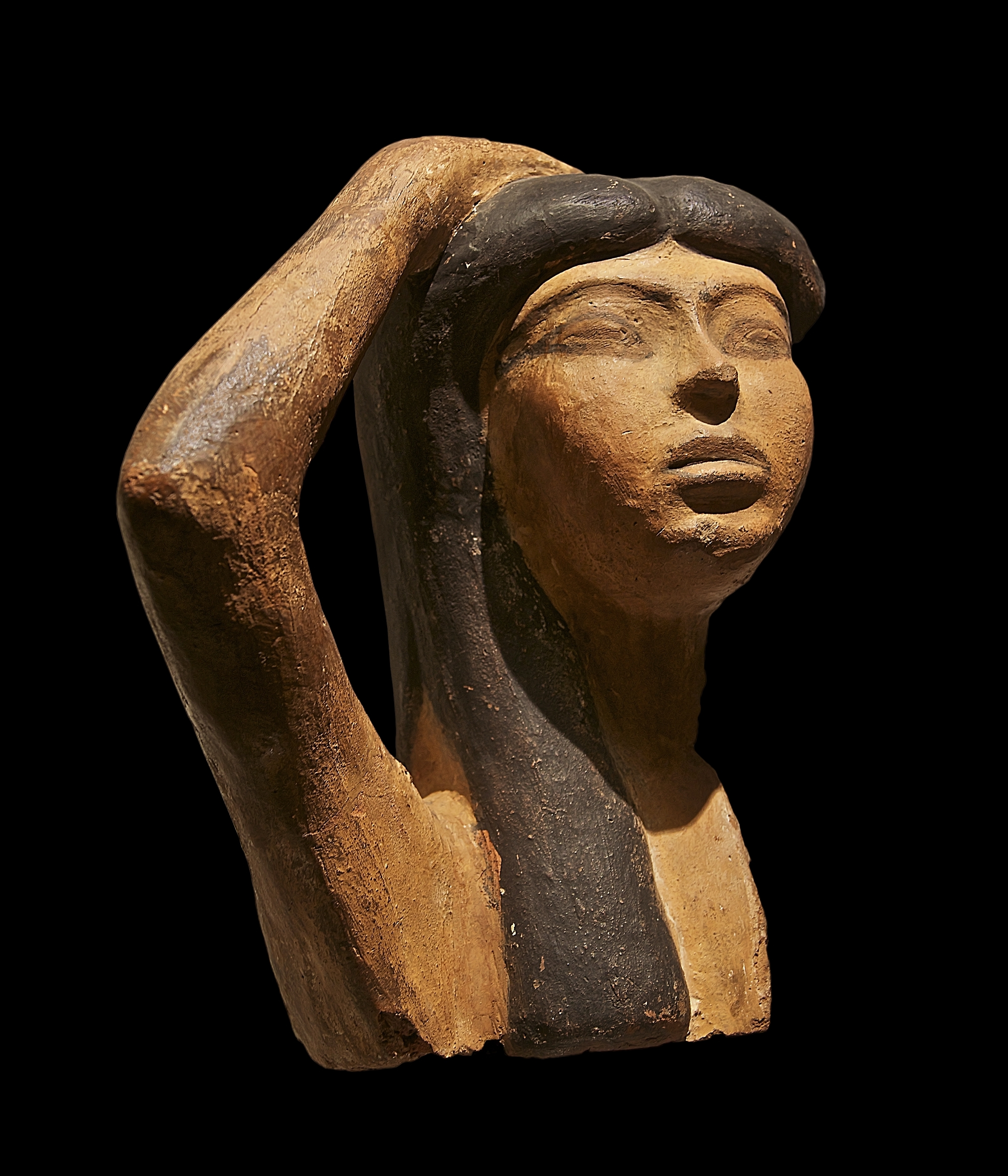|
Leucippus Of Crete
In Greek mythology, Leucippus (Ancient Greek: Λεύκιππος ''Leukippos,'' "white horse") was a young man of Phaistos, Crete. Leucippus was born to Lamprus, the son of Pandion, and Galatea, daughter of Eurytius the son of Sparton. He is notable for having undergone a magical gender transformation by the will of the goddess Leto. Due to his transition from female to male, Leucippus can be considered a transgender male figure in Greek mythology. His story was included in the ''Metamorphoses'' by Antoninus Liberalis. It shares several elements with the myth of Iphis, another female child raised as and transformed into a male from Ovid's ''Metamorphoses''. Mythology Leucippus was born in Phaistos, Crete. When his mother Galatea was pregnant, her husband Lamprus told her he would only accept a male child. Galatea gave birth while Lamprus was away pasturing his cattle, and the infant was female. Following the advice of seers, Galatea gave her child a masculine name, Leucippus ... [...More Info...] [...Related Items...] OR: [Wikipedia] [Google] [Baidu] |
Peplos
A peplos ( el, ὁ πέπλος) is a body-length garment established as typical attire for women in ancient Greece by circa 500 BC, during the late Archaic and Classical period. It was a long, rectangular cloth with the top edge folded down about halfway, so that what was the top of the rectangle was now draped below the waist, and the bottom of the rectangle was at the ankle. One side of the peplos could be left open, or pinned or sewn together.Ancient Greek Dress ''Heilbrunn Timeline of Art History'', , 2000-2013. Retrieved 7 October 2013. In Latin and in a Roman context, it could be called a '' [...More Info...] [...Related Items...] OR: [Wikipedia] [Google] [Baidu] |
Metamorphoses
The ''Metamorphoses'' ( la, Metamorphōsēs, from grc, μεταμορφώσεις: "Transformations") is a Latin narrative poem from 8 CE by the Roman poet Ovid. It is considered his ''magnum opus''. The poem chronicles the history of the world from its creation to the deification of Julius Caesar in a mythico-historical framework comprising over 250 myths, 15 books, and 11,995 lines. Although it meets some of the criteria for an epic, the poem defies simple genre classification because of its varying themes and tones. Ovid took inspiration from the genre of metamorphosis poetry and some of the ''Metamorphoses'' derives from earlier treatment of the same myths; however, he diverged significantly from all of his models. One of the most influential works in Western culture, the ''Metamorphoses'' has inspired such authors as Dante Alighieri, Giovanni Boccaccio, Geoffrey Chaucer, and William Shakespeare. Numerous episodes from the poem have been depicted in works of sculpture, ... [...More Info...] [...Related Items...] OR: [Wikipedia] [Google] [Baidu] |
Artemis
In ancient Greek mythology and religion, Artemis (; grc-gre, Ἄρτεμις) is the goddess of the hunt, the wilderness, wild animals, nature, vegetation, childbirth, care of children, and chastity. She was heavily identified with Selene, the Moon, and Hecate, another Moon goddess, and was thus regarded as one of the most prominent lunar deities in mythology, alongside the aforementioned two.Smiths.v. Artemis/ref> She would often roam the forests of Greece, attended by her large entourage, mostly made up of nymphs, some mortals, and hunters. The goddess Diana is her Roman equivalent. In Greek tradition, Artemis is the daughter of the sky god and king of gods Zeus and Leto, and the twin sister of Apollo. In most accounts, the twins are the products of an extramarital liaison. For this, Zeus' wife Hera forbade Leto from giving birth anywhere on land. Only the island of Delos gave refuge to Leto, allowing her to give birth to her children. Usually, Artemis i ... [...More Info...] [...Related Items...] OR: [Wikipedia] [Google] [Baidu] |
Siproites
In Greek mythology, Siproites (; ; grc-gre, Σιπροίτης, Siproítēs) or Siproetes is the name of a Cretan hero, who saw the goddess Artemis naked while she was bathing and was then transformed into a woman, paralleling the story of the hunter Actaeon. Mythology Siproites, while hunting, saw Artemis bathing naked; in response to the offence, the virgin goddess turned him into a woman: The Cretan, Siproites, had also been turned into a woman for having seen Artemis bathing when out hunting. Antoninus Liberalis, ''Metamorphoses''Leucippus/ref> The full story of Siproites has been lost; the above passage is all that remains, as Antoninus Liberalis alone preserves the tale in a brief mention. This sex-change tale shares similarities with the myth of Athena blinding Tiresias for seeing her naked. This reversal story brings Siproites into line with several other male hunters and soldiers who were emasculated, both literally and metaphorically, such as Attis and Orion. Se ... [...More Info...] [...Related Items...] OR: [Wikipedia] [Google] [Baidu] |
Mnestra
In Greek mythology, Mestra ( grc, Μήστρα, ''Mēstra'') was a daughter of Erysichthon of Thessaly. Antoninus Liberalis called Mestra as Hypermestra while Erysichthon as Aethon. Family Mestra was the mother of King Eurypylus of Cos by Poseidon. According to Ovid, she was married to the thief Autolycus. Mythology Mestra had the ability to change her shape at will, a gift of her lover Poseidon according to Ovid. Erysichthon exploited this gift in order to sate the insatiable hunger with which he had been cursed by Demeter for violating a grove sacred to the goddess. The father would repeatedly sell his daughter to suitors for the bride prices they would pay, only to have the girl return home to her father in the form of various animals. Mestra's great-granduncle Sisyphus also hoped to win her as a bride for his son Glaucus although that marriage did not take place. Ultimately, Poseidon carried away Mestra to the island of Cos.Hesiod, ''Ehoiai'' 43a.79(55)–82(58)"And ... [...More Info...] [...Related Items...] OR: [Wikipedia] [Google] [Baidu] |
Clairvoyance
Clairvoyance (; ) is the magical ability to gain information about an object, person, location, or physical event through extrasensory perception. Any person who is claimed to have such ability is said to be a clairvoyant () ("one who sees clearly"). Claims for the existence of paranormal and psychic abilities such as clairvoyance have not been supported by scientific evidence. Carroll, Robert Todd. (2003)"Clairvoyance" Retrieved 2014-04-30. Parapsychology explores this possibility, but the existence of the paranormal is not accepted by the scientific community. The scientific community widely considers parapsychology, including the study of clairvoyance, a pseudoscience. Usage Pertaining to the ability of clear-sightedness, clairvoyance refers to the paranormal ability to see persons and events that are distant in time or space. It can be divided into roughly three classes: precognition, the ability to perceive or predict future events, retrocognition, the ability to see pa ... [...More Info...] [...Related Items...] OR: [Wikipedia] [Google] [Baidu] |
Teiresias
In Greek mythology, Tiresias (; grc, Τειρεσίας, Teiresías) was a blind prophet of Apollo in Thebes, famous for clairvoyance and for being transformed into a woman for seven years. He was the son of the shepherd Everes and the nymph Chariclo. Tiresias participated fully in seven generations in Thebes, beginning as advisor to Cadmus himself. Mythology Eighteen allusions to mythic Tiresias, noted by Luc Brisson, fall into three groups: the first recounts Tiresias' sex-change episode and later his encounter with Zeus and Hera; the second group recounts his blinding by Athena; the third, all but lost, seems to have recounted the misadventures of Tiresias. Blindness and gift of prophecy Like other oracles, how Tiresias obtained his information varied: sometimes, he would receive visions; other times he would listen for the songs of birds, or ask for a description of visions and pictures appearing within the smoke of burnt offerings or entrails, and so interpret them ... [...More Info...] [...Related Items...] OR: [Wikipedia] [Google] [Baidu] |
Centaur
A centaur ( ; grc, κένταυρος, kéntauros; ), or occasionally hippocentaur, is a creature from Greek mythology with the upper body of a human and the lower body and legs of a horse. Centaurs are thought of in many Greek myths as being as wild as untamed horses, and were said to have inhabited the region of Magnesia and Mount Pelion in Thessaly, the Foloi oak forest in Elis, and the Malean peninsula in southern Laconia. Centaurs are subsequently featured in Roman mythology, and were familiar figures in the medieval bestiary. They remain a staple of modern fantastic literature. Etymology The Greek word ''kentauros'' is generally regarded as being of obscure origin. The etymology from ''ken'' + ''tauros'', 'piercing bull', was a euhemerist suggestion in Palaephatus' rationalizing text on Greek mythology, ''On Incredible Tales'' (Περὶ ἀπίστων), which included mounted archers from a village called ''Nephele'' eliminating a herd of bulls that were the scourge ... [...More Info...] [...Related Items...] OR: [Wikipedia] [Google] [Baidu] |
Poseidon
Poseidon (; grc-gre, Ποσειδῶν) was one of the Twelve Olympians in ancient Greek religion and myth, god of the sea, storms, earthquakes and horses.Burkert 1985pp. 136–139 In pre-Olympian Bronze Age Greece, he was venerated as a chief deity at Pylos and Thebes. He also had the cult title "earth shaker". In the myths of isolated Arcadia he is related with Demeter and Persephone and he was venerated as a horse, however, it seems that he was originally a god of the waters.Seneca quaest. Nat. VI 6 :Nilsson Vol I p.450 He is often regarded as the tamer or father of horses, and with a strike of his trident, he created springs which are related to the word horse.Nilsson Vol I p.450 His Roman equivalent is Neptune. Poseidon was the protector of seafarers, and of many Hellenic cities and colonies. Homer and Hesiod suggest that Poseidon became lord of the sea when, following the overthrow of his father Cronus, the world was divided by lot among Cronus' three sons; Zeus w ... [...More Info...] [...Related Items...] OR: [Wikipedia] [Google] [Baidu] |
Caeneus
In Greek mythology, Caeneus ( ; grc, Καινεύς, Kaineús) was a Lapith hero of Thessaly. Family According to Book XII of Ovid's ''Metamorphoses'', he was originally a woman, Caenis (; grc, Καινίς, Kainís), daughter of Atrax. In Apollonius of Rhodes' ''Argonautica'', he is briefly noted as the great father of a lesser son, Coronus, who sailed forth among the Argonauts. Caeneus was also an Argonaut in some versions. The striking mythic image of this hero is that, indomitable through his more-than-human power, his enemies the Centaurs resorted to driving him into the ground with timbers: Myth Caeneus was originally a woman named Caenis who was transformed into a man by the sea-god Poseidon. According to the Greek mythographer Apollodorus, and a scholiast on the ''Iliad'', Poseidon had sex with her, and afterward she asked him to turn her into an invincible man; Poseidon granted her wish. According to Acusilaus, whose version is the earliest surviving one, Caen ... [...More Info...] [...Related Items...] OR: [Wikipedia] [Google] [Baidu] |
Isis
Isis (; ''Ēse''; ; Meroitic: ''Wos'' 'a''or ''Wusa''; Phoenician: 𐤀𐤎, romanized: ʾs) was a major goddess in ancient Egyptian religion whose worship spread throughout the Greco-Roman world. Isis was first mentioned in the Old Kingdom () as one of the main characters of the Osiris myth, in which she resurrects her slain brother and husband, the divine king Osiris, and produces and protects his heir, Horus. She was believed to help the dead enter the afterlife as she had helped Osiris, and she was considered the divine mother of the pharaoh, who was likened to Horus. Her maternal aid was invoked in healing Spell (paranormal), spells to benefit ordinary people. Originally, she played a limited role in royal rituals and temple rites, although she was more prominent in funerary practices and magical texts. She was usually portrayed in art as a human woman wearing a throne-like hieroglyph on her head. During the New Kingdom (), as she took on traits that originally belo ... [...More Info...] [...Related Items...] OR: [Wikipedia] [Google] [Baidu] |
Telethusa
Telethusa (Ancient Greek: Τελέθουσα) was the Cretan mother of Iphis by Ligdus in Greek Mythology. Mythology Telethusa was told by her husband Ligdus that if she gave birth to a girl, the child would be put to death. But when the child was about to be born Telethusa had a vision in her dreams in which Isis, in the company of other Egyptian gods (Anubis, Bubastis, Apis, Harpocrates and Osiris), told her not to obey her husband's orders. Doing as the vision said, Telethusa then raised her daughter Iphis as a boy to spare her from Ligdus's wrath. Iphis was later transformed into a man by the Egyptian goddess Isis in order to marry her true love, the maiden Ianthe.Ovid, ''Metamorphoses'9.789-937/ref> Note References * Publius Ovidius Naso Pūblius Ovidius Nāsō (; 20 March 43 BC – 17/18 AD), known in English as Ovid ( ), was a Roman poet who lived during the reign of Augustus. He was a contemporary of the older Virgil and Horace, with whom he is often ranked ... [...More Info...] [...Related Items...] OR: [Wikipedia] [Google] [Baidu] |







